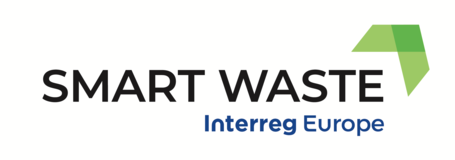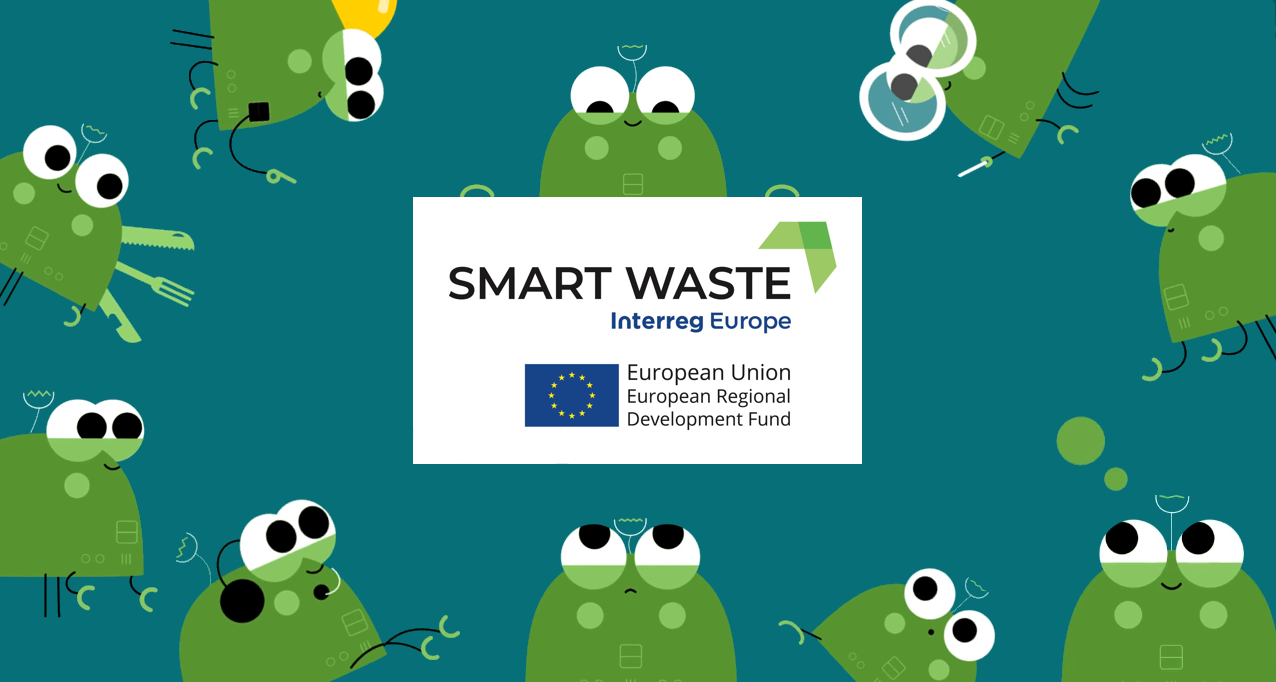The Final Meeting of the SMART WASTE partners for the current phase of interregional exchange took place in Klaipeda, Lithuania. It was the occasion for partners and their stakeholders to engage in a comprehensive and final peer review of their work within the project, focusing on the finalised Action Plans. They reviewed the necessary steps to be taken in the upcoming months, to close the phase of interregional exchange and start the implementation phase.
The Meeting included an Exchange Session, Study Visits to a recultivated landfill as well as to some of the local waste management systems in action, and a Steering Committee Session.
Exchange Session
Divided in small discussion groups, partners tackled three main topics with the objective to identify a set of lessons learnt and recommendations for public authorities intending to make their waste management policies smarter:
- Technologies for waste collection;
- Technologies for waste recycling (and measures for reuse);
- Designing and monitoring public policies and measures for waste management
Among the elements the elements that they highlighted is the key role of technologies, not only to optimise collection and recycling practices, but also as a way to improve connections among users, waste management companies and public administrations. Although technologies are crucial for the waste sector, they agreed on the importance of the human factor, under various aspects: citizens must be informed and educated on waste sorting and recycling practices, they must be aware of the rules in place and of recycling / reuse options available. At the same time, staff of administrations and companies in charge of waste management must be trained in communication with citizens, as well as on the application of sound methods and tools to monitor the effectiveness of waste policies and measures, so that investments can be oriented in a sustainable and successful way and corrective actions can be quickly adopted in case of failure.
Partners pointed out the interesting trend of various online marketplaces that are quickly emerging (e.g. to exchange second hand goods, demolition waste, etc.). These should be carefully monitored, as they may bring good inspiration and inputs for further citizen-based innovation in the waste management sector.
Study visits
Curonian Spit and municipality of Neringa
Curonian Spit, one of the five national parks in Lithuania, is a very popular tourist destination which poses significant challenges in terms of waste management. It was home to a landfill waste management site that was closed (following a national law) in 2008 and it is now being recultivated.
More here.
Waste mangement in the historical centre of Klaipeda
The collection system in the historical centre of Klaipeda relies on both roadside and underground containers, for separate collection of several different waste fractions, such as paper, cardboard, glass, metal and plastic packaging and mixed municipal waste. Food and green waste separate collection is, up to date, under evaluation for future implementation, since it may very well prove synergic with the Depacker project. Indeed, Depacker provides proper selection of food waste from shopping bags, so ensuring high quality food waste to recycling facilities in the Region, such as biogas production facilities.
KRWMC performs waste composition analysis on a regular basis in order to assess the level of cross contamination thus supporting the evaluation of the need, if any, for intervention in terms of communication & awareness raising camping, optimisation of waste collection routes and number and categories of containers distribution and so on.
Presentations
- Action Plan for Lithuania, Ramunas Povilankas, KRWMC (LT)
- Action Plan for Tuscany, Massimiliano Di Mattia, ARRR (IT)
- Action Plan for Kolding, Martin Pedersen Stub, Municipality of Kolding (DK)
- Action Plan for Bulgaria, Vihra Andonova, BAMEE (BG)
- Action Plan for Municipality of Apeldoorn, Carla Fransen, Municipality of Apeldoorn (NL)
Programme
Day 1 - 23 May
| 09:00 - 12:30 | Exchange session “SMART WASTE Action Plans – The future”
|
| 12:30 - 14:00 | Lunch |
| 14:00 - 16:30 | Study visit |
Day 2 - 24 May
| 09:00 - 11:30 | Steering Group meeting (partners only) |
| 11:30 - 14:00 | Study visit 2 |



